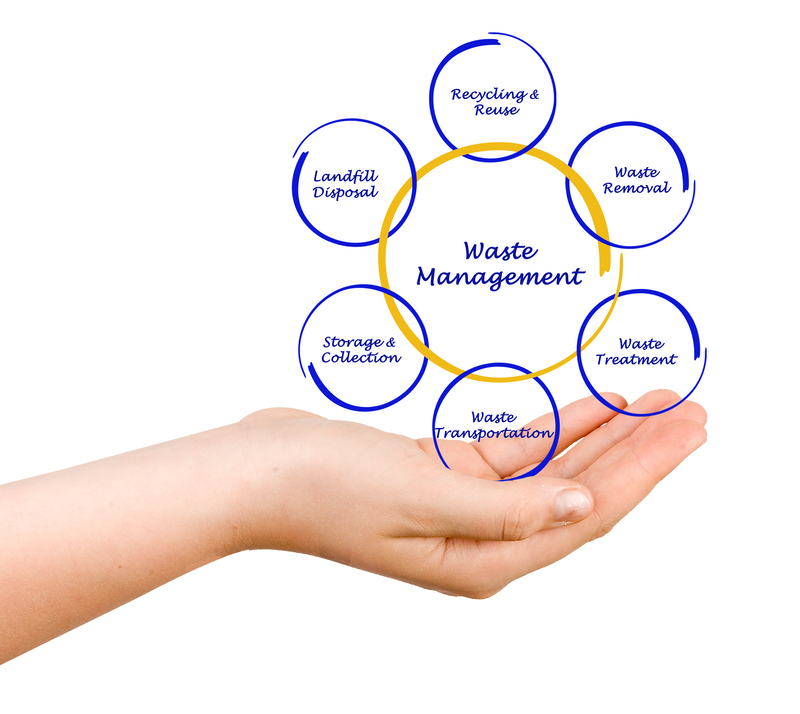The Significance of Effective Waste Management
Posted on 01/01/2025
Waste management is a crucial aspect of maintaining a healthy and sustainable environment. This practice involves the collection, transportation, processing, recycling, and disposal of waste materials. Effective waste management aims to reduce the adverse effects of waste on human health and the environment. With increasing global population and consumption rates, the importance of efficient waste management cannot be overstated.
Environmental Impact
Improper waste disposal leads to a multitude of environmental problems. For instance, landfills often result in soil and groundwater contamination due to the leachate they produce. Additionally, inadequate waste management contributes to air pollution. Burning waste materials releases harmful gases such as carbon dioxide, methane, and volatile organic compounds into the atmosphere. Methane, in particular, is a potent greenhouse gas that significantly accelerates climate change.

Public Health Concerns
Inefficient waste management poses serious public health risks. Accumulated waste becomes a breeding ground for vectors such as rats, flies, and mosquitoes, which are often carriers of diseases like malaria, dengue, and cholera. Even waste facilities that do not follow regulations strictly can emit toxins that harm local populations. Health risks are especially pronounced in developing countries where waste management infrastructure is frequently inadequate.
Regulatory Frameworks and Policies
Governments around the world have recognized the need for standardized and effective waste management systems. Various international treaties and national policies have been developed to address this pressing issue. For example, the European Union's Waste Framework Directive mandates member states to follow a hierarchical structure of waste management, emphasizing prevention, reuse, recycling, and energy recovery before resorting to disposal. The United States Environmental Protection Agency (EPA) also enforces a stringent set of guidelines designed to manage waste sustainably.
Economic Benefits
Effective waste management can yield significant economic advantages. A well-structured recycling program not only conserves natural resources but also creates job opportunities in waste collection, sorting, and processing sectors. Moreover, energy recovery from waste can be a valuable source of renewable energy, reducing the dependency on fossil fuels. Businesses adopting sustainable waste practices often see a positive impact on their bottom line due to efficient use of resources and improved public perception.
Technological Innovations
Technological advancements play a key role in modern waste management. Innovations such as smart bins equipped with sensors can optimize waste collection routes, thereby reducing fuel consumption and operational costs. Advanced recycling facilities employ automated sorting systems that increase the efficiency and accuracy of separating recyclable materials. Waste-to-energy (WTE) technologies, which convert non-recyclable waste materials into usable heat, electricity, or fuel, are increasingly being adopted globally.
Community Involvement and Education
Effective waste management is not solely the responsibility of governments and businesses--it requires active involvement from the community. Public awareness campaigns can educate individuals on the importance of reducing, reusing, and recycling waste. Schools and local organizations can collaborate to implement educational programs that instill a sense of environmental responsibility among the younger generation. Community cleanup drives and recycling initiatives can significantly reduce the amount of waste that ends up in landfills.

Challenges and Future Directions
Despite the evident benefits, implementing effective waste management systems comes with its set of challenges. Financial constraints, lack of public awareness, and inadequate infrastructure are some of the hurdles that need to be overcome. In developing countries, the challenges are even more pronounced due to limited technological and financial resources.
Nonetheless, the future of waste management looks promising with continuous advancements in technology and increased governmental and public engagement. Implementing circular economy principles--where waste is viewed as a resource and products are designed for longer lifespans--can lead to more sustainable waste management practices. Global cooperation and knowledge sharing can also aid in overcoming existing barriers and achieving comprehensive waste management systems worldwide.
Conclusion
The significance of effective waste management extends beyond just environmental protection; it encompasses public health, economic benefits, and technological innovation. As global challenges like climate change and resource scarcity become more pressing, the role of efficient waste management becomes increasingly vital. By adopting sustainable practices, enhancing regulatory frameworks, leveraging technological advancements, and encouraging community involvement, a cleaner and healthier world is achievable. The collective effort of individuals, businesses, and governments will pave the way for a future where waste is minimized and managed responsibly.










